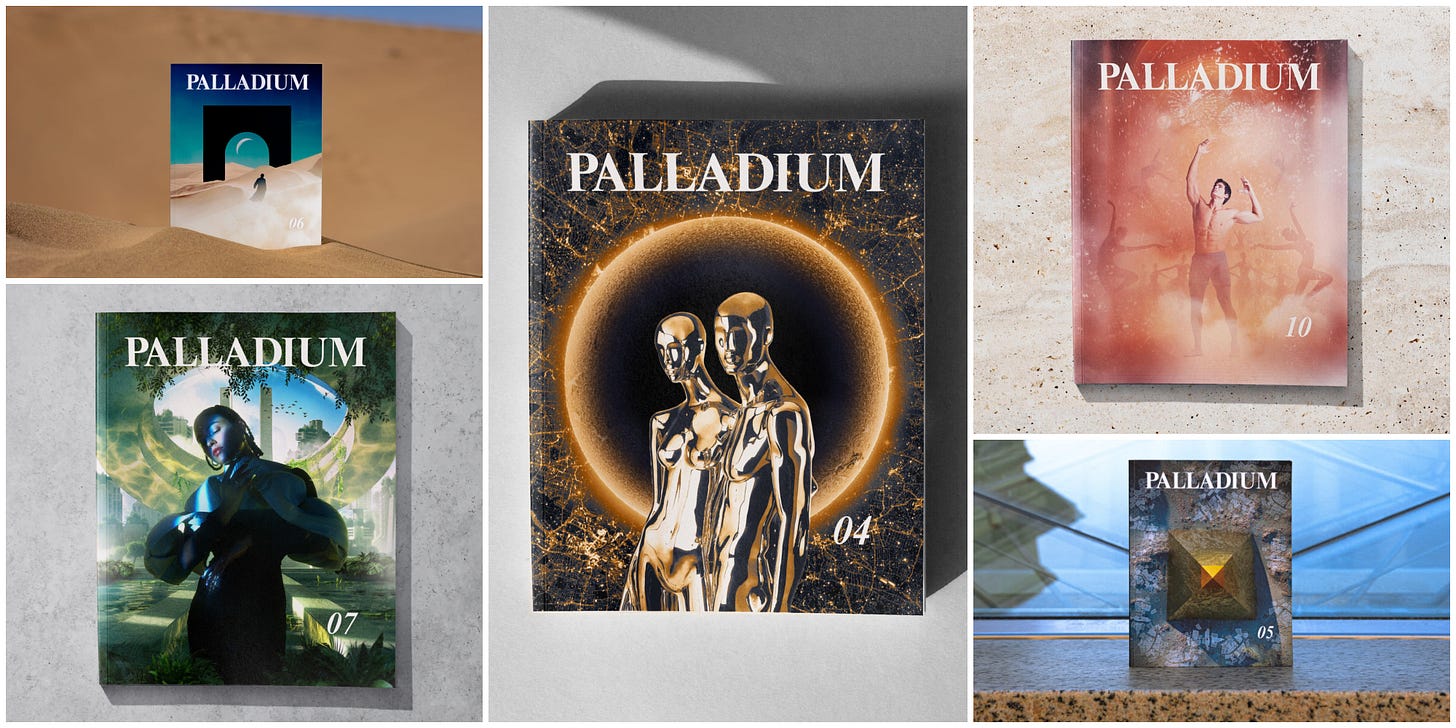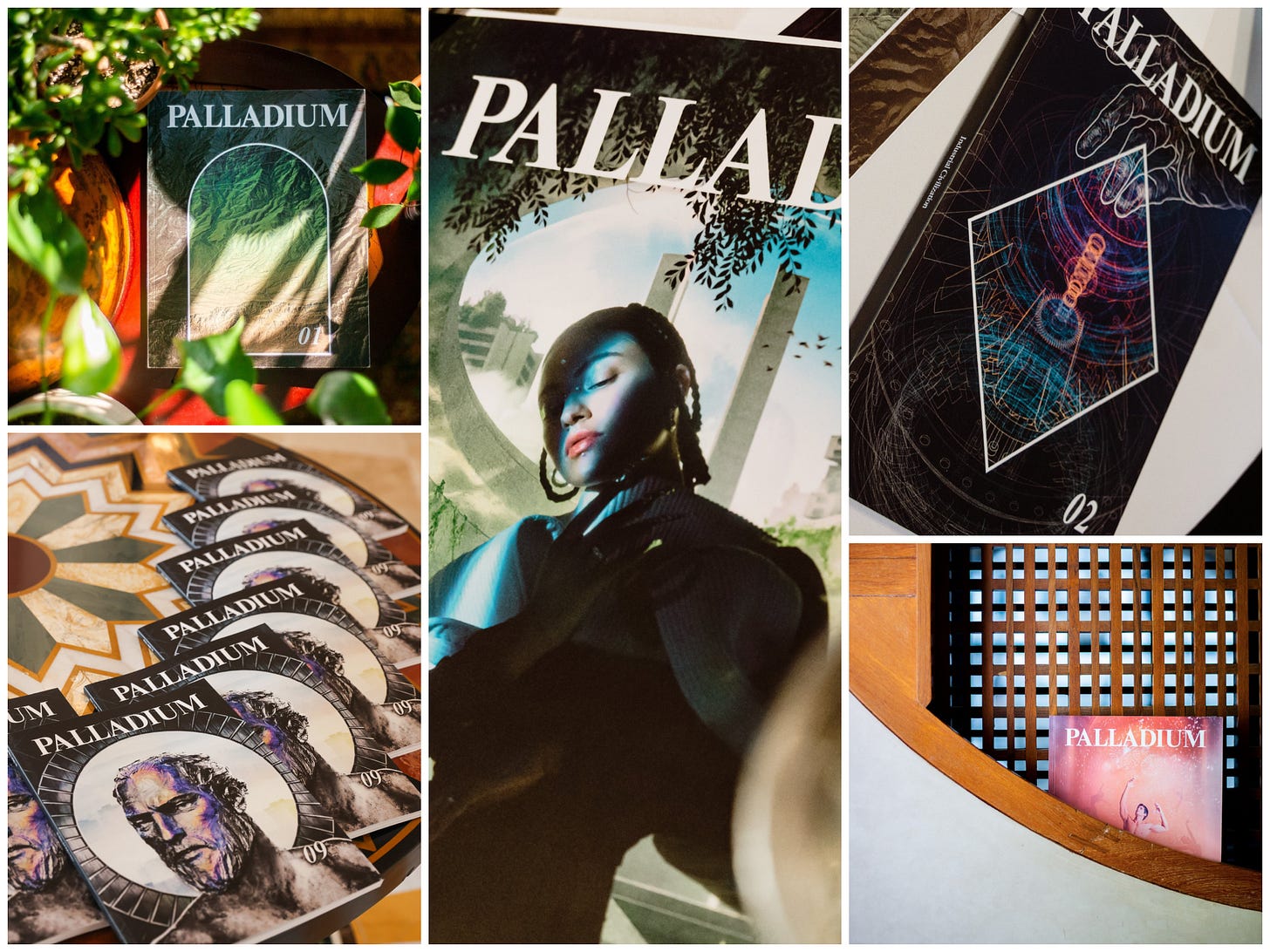Why You Should Support Palladium Magazine
The contrarian answer to both East Coast legacy institutions and the complacency of Silicon Valley techno-optimism is needed to reform institutions and change the trajectory of modern civilization.
Note: an earlier version of this email contained obsolete links. These have been corrected.
I am writing to ask you to support Palladium Magazine, a truly unique publication founded in 2018 as the contrarian answer to both legacy institutions on the East Coast and the complacency of Silicon Valley techno-optimism. The fundamental problems of our age are problems of governance. The mission of Palladium is governance futurism: the practice of envisioning and implementing new solutions to these problems, unadulterated by the conventions and politics which have brought us to this point in the first place.
There is not and never will be a paywall at Palladium. As a result, Palladium’s work has already moved public discourse into better directions many times over the years. Palladium has been a key place to learn how to understand China, whether through first-hand accounts of life in Xinjiang’s surveillance state, translations of Xi Jinping’s speeches, or profiles of China’s ideological elites like Wang Huning. Rarely are the West’s own elite institutions constructively critiqued from the inside: Palladium has investigated Stanford’s war on social life, the malformation of elites at Yale or Harvard, and the empty spectacle of Davos. In Taliban-ruled Afghanistan, Palladium has found that the internet culture built on American tech platforms predominates even there.
As a rule, independent media is shut out of the discourse which regulates the ideas, events, and actions that powerful institutions are allowed to respectively consider, pay attention to, or undertake. Palladium has proved a welcome exception to that rule, whether in sparking change at Stanford or being linked in The Atlantic, The New Yorker, Foreign Affairs, and other legacy prestige media.
I am a proud supporter and board member of Palladium. If you have followed my work over the last few years, you have probably read several of my essays in Palladium too. Most recently, I explained why breakthrough progress in science cannot happen without the legitimizing support of sovereigns. Perhaps my most-read article of all time was published in Palladium: I explained why archaeological discoveries like the 11,000-year-old Göbekli Tepe site in Turkey suggest civilization is far older than we thought.
My colleagues at Bismarck Analysis have published fascinating work in Palladium too, such as on why the core appeal of space exploration is not economic, but a possible way to transform humanity, or how new industries come from crazy people. I enjoyed reading a recent proposal to unify the local governments of the San Francisco Bay Area into one functional and unified city government, as well as Vitalik Buterin’s report on how he built a temporary city of two-hundred people on the Mediterranean.
The unfortunate fact of the information landscape today is that such articles could not have been published in any other magazine. The world in which the highest organs of intellectual society devote themselves to exploring the most pressing unsolved problems of modern civilization is not the world we live in. One cannot expect to read the solution to demographic decline or a vision for a new spacefaring society in the legacy magazines today. This is one of many examples of widespread institutional decay. But Palladium shows us there is at least one place where such discussions are happening. Without it, there would be none at all.
Since the rise of the internet, it has been a common belief that the global connectivity enabled by consumer information technology will create decentralized, collective intellectual organs that will irreversibly displace the sense-making roles of newspapers, magazines, and academic institutions. After over twenty years of experimentation, this has not happened. In fact, the old institutions have proven remarkably robust and even capable of bending the new information flows to their will. Between link rot, selective deletions, and rewritings of digitally-recorded history, even the promise of an objective and accessible repository of all human knowledge is no longer in reach.
It means we cannot expect the bright future of civilization to be an emergent phenomenon from the internet. It will be wrenched into being by motivated individuals and new institutions, like Palladium. Each print edition of the magazine is a gorgeous piece of art to keep at home; it is also a permanent and unchangeable physical record of the best thinking on the future of governance.
I endorse Palladium and warmly recommend you become a supporter here. It is the duty of every person to support work on solving the deep civilizational problems that confront us all. There is no academic or government body that will do this work instead, though should it someday come to exist, I have no doubt Palladium will have played a key role in bringing it about.
Palladium is part of the American Governance Foundation, a 501(c)(3) non-profit organization, so all subscriptions and donations are tax-deductible in the United States. Supporters receive the gift of a beautiful quarterly print edition that collects the most important essays and interviews on a particular facet of modern governance and civilization. Palladium editions cannot be purchased individually. If you wish to acquire a full collection, this gift is available to sponsors. You can become a sponsor here.
As a Palladium supporter, you are also exclusively invited to Palladium’s quarterly launch parties, which are typically held in San Francisco or Austin.
Sincerely,
Samo Burja
Founder and President, Bismarck Analysis





